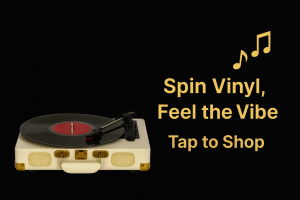Ever heard a song that makes you feel a little sad but also kind of… good?
This song is like that. It’s about remembering good times, even if they’re gone.
It has a cool, chill vibe, but the lyrics are about growing up and realizing things change.
It’s considered a classic and shows why some songs from classic rock artists like the one that wrote the song “The Boys of Summer” are still played today.
- Writers: Don Henley and Mike Campbell
- Album: Building the Perfect Beast (1984)
- Producer: Don Henley, Mike Campbell, Danny Kortchmar, and Greg Ladanyi
📝 Background & Meaning:
“The Boys of Summer” was written by Don Henley, the drummer and co-lead vocalist of The Eagles, along with Mike Campbell, the guitarist for Tom Petty and the Heartbreakers.
Released as the lead single from Henley’s second solo album, Building the Perfect Beast, the song became a massive hit, reaching #5 on the Billboard Hot 100 and winning a Grammy Award for Best Male Rock Vocal Performance.
The song is a reflective, bittersweet exploration of loss, nostalgia, and the passage of time.
Henley’s lyrics mourn the end of a summer romance while grappling with fading youth and changing ideals.
The phrase “The Boys of Summer” symbolizes the carefree spirit and innocence of youth, contrasted with the inevitability of growing older and losing those moments to time.
The song also touches on post-60s idealism, with Henley reflecting on the shifting cultural landscape of America in the 1980s.
It’s both deeply personal and universally relatable, balancing melancholy with a glimmer of hope and resilience.
🎤 Key Themes:
- Nostalgia and Loss: Reflects on the passing of youth and the loss of a fleeting summer romance.
- The Passage of Time: The song explores the relentless march of time and how it shapes our memories.
- Romantic Regret: Henley grapples with the end of a meaningful relationship.
- Cultural Change: The song subtly comments on the shifting social and cultural ideals of the 1980s.
🎧 Notable Lyrics:
“Nobody on the road, nobody on the beach / I feel it in the air, the summer’s out of reach.”
- Sets a melancholic, wistful tone right from the opening lines.
“I can see you, your brown skin shining in the sun / You got your hair slicked back and those Wayfarers on, baby.”
- Evokes a vivid image of a summer romance that lingers in the narrator’s mind.
“But I can see you, your smile so bright / It haunts me, it haunts me night and day.”
- Conveys the persistent ache of lost love and the inability to move on.
“A little voice inside my head said, ‘Don’t look back, you can never look back.'”
- Captures the harsh truth about time’s irreversible nature.
🎸 Musical Highlights:
- Iconic Guitar Riff: Mike Campbell’s haunting, shimmering guitar riff sets the emotional tone.
- Synth-Pop Influences: The song blends rock with atmospheric synth elements, defining the 80s soundscape.
- Henley’s Raspy Vocals: Henley delivers raw and introspective vocals that perfectly convey the song’s melancholy.
- Layered Production: The track’s rich layers of instrumentation and vocal harmonies create a cinematic feel.
- Memorable Chorus: The chorus is emotionally powerful and instantly recognizable, driving home the song’s core message.
🌍 Cultural Impact:
- “The Boys of Summer” became one of Don Henley’s most iconic solo hits and a cornerstone of his career.
- The music video, directed by Jean-Baptiste Mondino, won multiple MTV Video Music Awards, including Video of the Year in 1985.
- The song has been covered and reinterpreted by several artists, including The Ataris, whose punk rock version introduced the track to a new generation.
- It remains a staple of classic rock radio and frequently appears in TV shows, movies, and commercials.
- The song is celebrated as one of the greatest rock songs of the 1980s, often included in “Best of” lists by music critics.
🎤 “The Boys of Summer” Fun Fact:
- Mike Campbell originally wrote the song’s instrumental demo for Tom Petty and the Heartbreakers, but Petty passed on it. Campbell then offered it to Don Henley, who wrote the lyrics.
- The famous line “Out on the road today, I saw a Deadhead sticker on a Cadillac” was inspired by Henley’s frustration with the commercialization of counterculture ideals.
- Henley has described the song as one of the most personal and meaningful tracks of his career.
🔑 What It Represents:
“The Boys of Summer” isn’t just a song—it’s a timeless meditation on love, loss, and the relentless passage of time.
It represents:
- The bittersweet nature of nostalgia and memory.
- The cultural shifts of the 1980s and the fading idealism of the 60s and 70s.
- The universal longing for lost love and fleeting summer moments.
- A deeply personal yet widely relatable emotional journey.
With its haunting guitar riff, introspective lyrics, and emotional weight, “The Boys of Summer” remains one of the most iconic and enduring songs of the 1980s, capturing both personal reflection and broader cultural commentary. 🎶☀️🎸
🎶 Why It Still Resonates Today:
“The Boys of Summer” talks about stuff everyone goes through.
Missing someone, remembering fun times, and realizing that things don’t stay the same forever – these are all feelings we can relate to.
Plus, the music has this awesome guitar part that just sticks with you.
It’s a song that makes you think, even if you’re just chilling.
This is also why many classic rock artists covered “The Boys of Summer.”
Closing Statement 🔚🎶🔥
“The Boys of Summer” is more than just a throwback tune. It’s a song that makes you feel something.
It’s a reminder that even though things change, memories are important.
It’s got a cool sound and lyrics that make you think, making it a true classic.
Many classic rock artists still get requests to perform it.
It proves the song title will always be a favorite, “The Boys of Summer.”.

